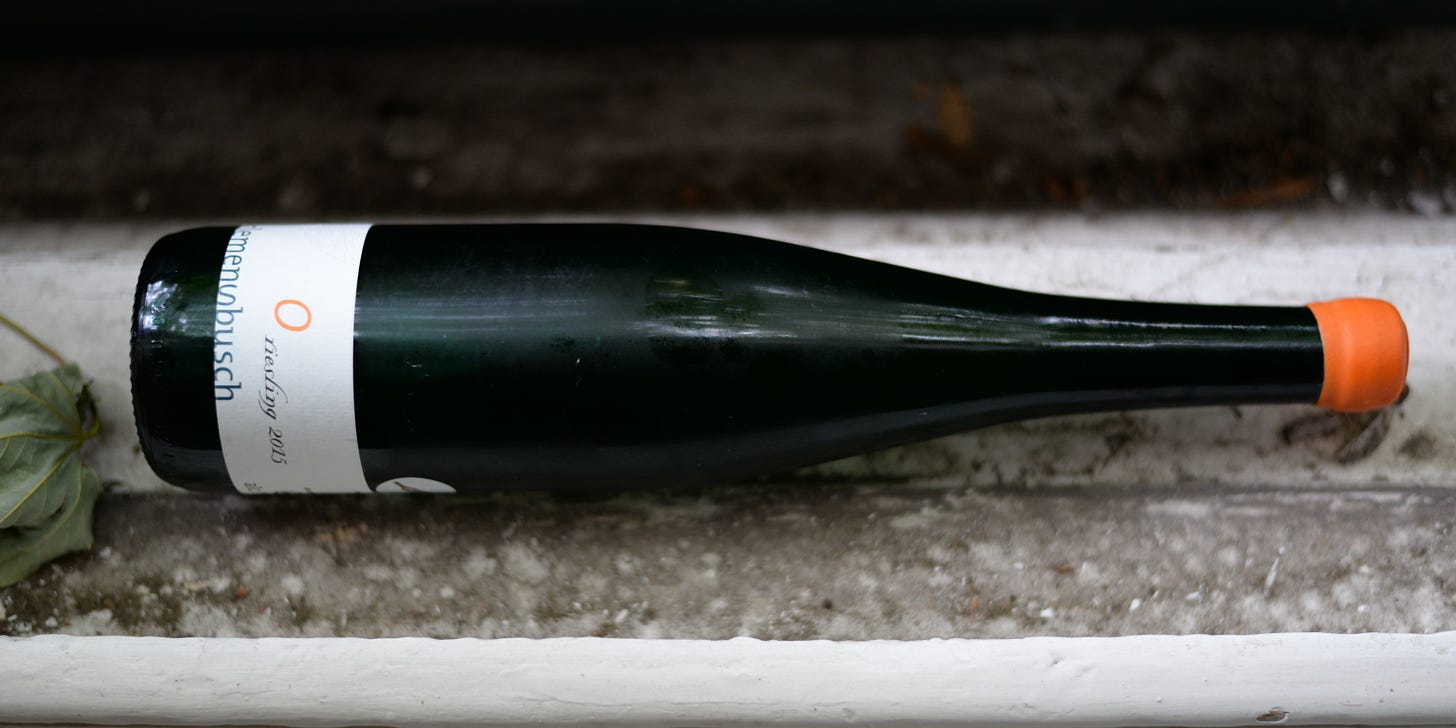Clemens Busch - Mosel Riesling Trocken "O" 2015

To celebrate the launch of Simon's Kickstarter campaign for his book Amber Revolution, here's a German "orange" wine made from Riesling.
German Riesling still has an image problem in the UK. And Germany is not the first place that comes to mind for unconventional vinification methods. Sure, there are a minority of winemakers, like Peter Jakob Kühn or Tho…
Keep reading with a 7-day free trial
Subscribe to The Morning Claret to keep reading this post and get 7 days of free access to the full post archives.


